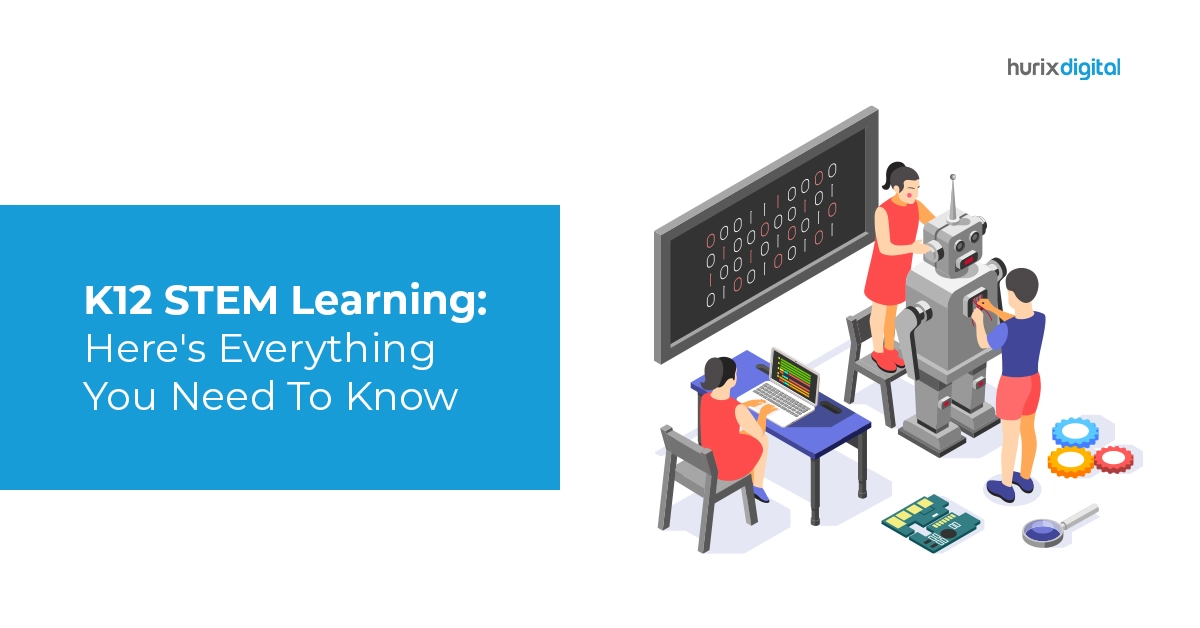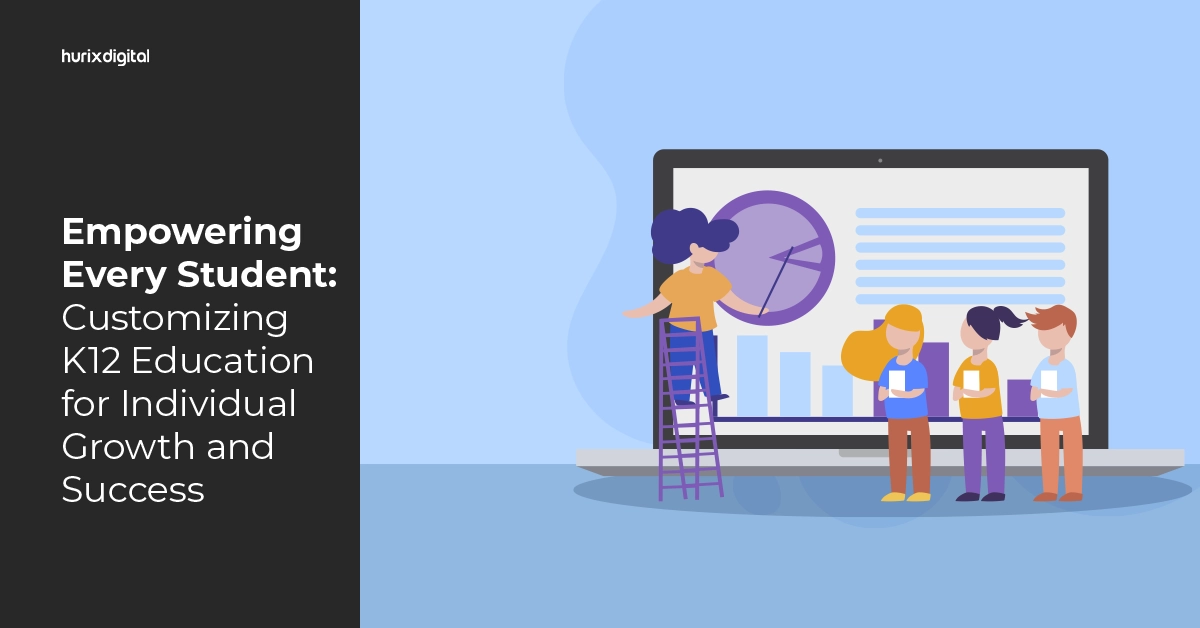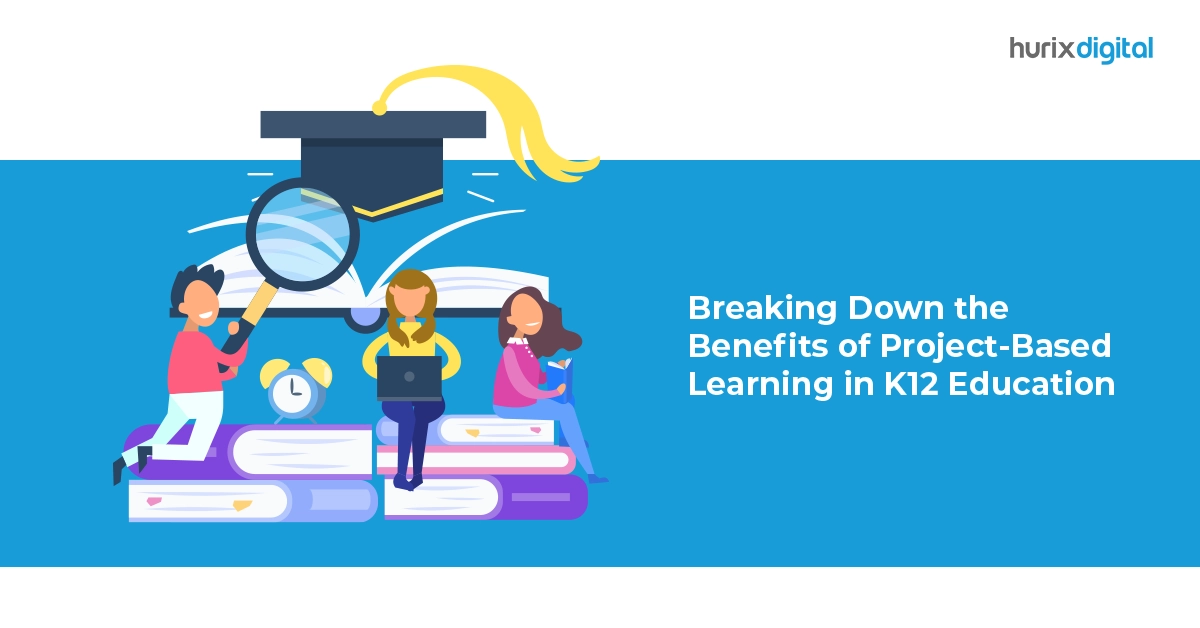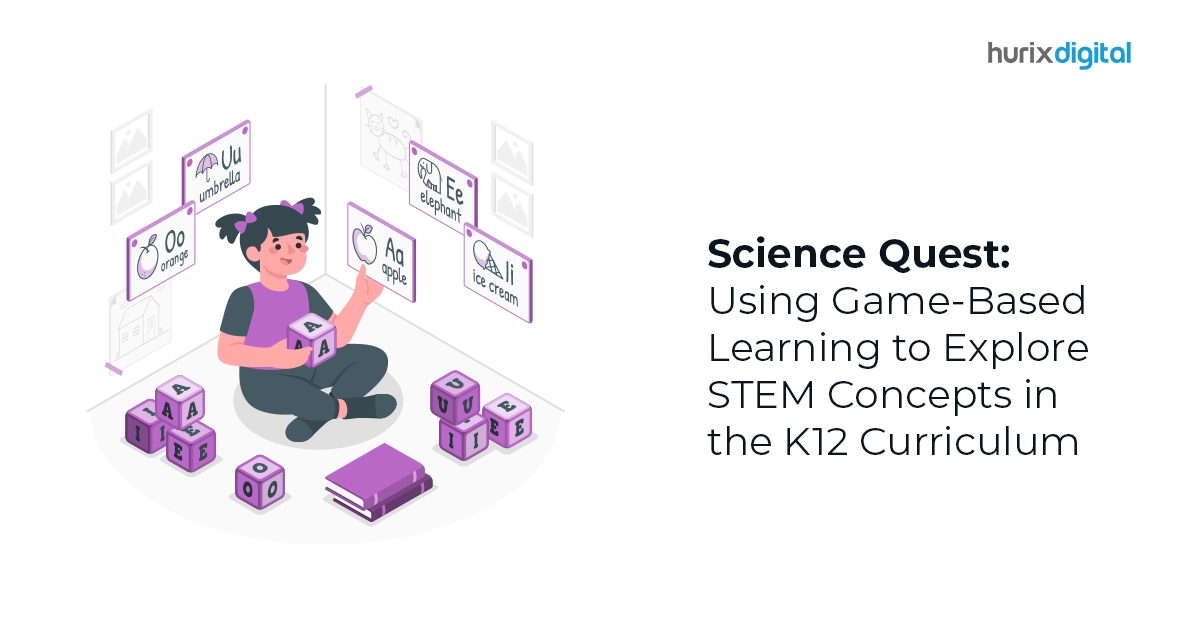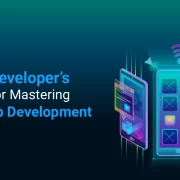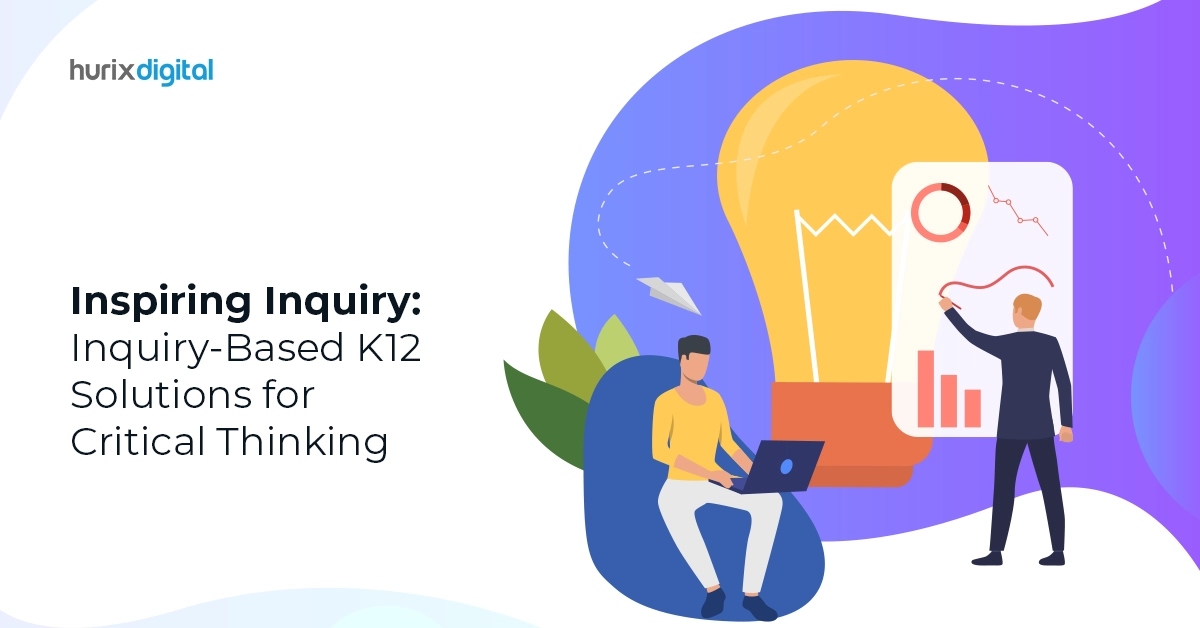
Inspiring Inquiry: Inquiry-Based K12 Solutions for Critical Thinking
Summary
Explore inquiry-based learning solutions that foster critical thinking. This blog provides strategies for encouraging deeper questioning and analysis in education.
Effective education demands more than passive knowledge acquisition in a world brimming with information. Inquiry-based learning (IBL) stands in stark contrast to the traditional “teacher-centered” approach to education.
Inquiry-based K12 solutions empower students to transcend rote memorization and actively participate in their learning journey by asking questions, investigating, and seeking solutions to real-world problems. This student-driven approach fosters critical thinking, problem-solving skills, and a natural curiosity for exploration.
Table of Contents:
- What is Inquiry-Based Learning?
- The Core Principles of IBL
- Top Benefits of IBL in K12 Education
- Implementing IBL in the Classroom
- Final Words
What is Inquiry-Based Learning?
Traditional instructional methods often present information upfront, leaving little room for student-driven questioning and exploration. Inquiry-based K12 solutions flip this script by placing questions at the heart of the learning experience. Teachers transform from information dispensers to facilitators, guiding students through open-ended inquiries that ignite their natural curiosity.
Critical thinking is paramount in all forms of inquiry-based learning. It transcends subject boundaries and shapes an individual’s growth mindset. This essential life skill allows students to analyze information, evaluate evidence, and form well-reasoned conclusions, ultimately differentiating them in their academic pursuits and beyond.
By employing inquiry-based learning, educators aim to foster a deep understanding of concepts and encourage lifelong learning skills. This way, students not only memorize facts but also develop the ability to think critically, solve problems, and apply knowledge to real-world situations.
Also Read: Tech-Powered Onboarding: Using AI and Gamification to Enhance the Experience
The Core Principles of IBL
Below are the key elements that define Inquiry-Based Learning (IBL):
- Student-centered: Learning revolves around student curiosity and questions, not pre-determined information.
- Problem-based: Students tackle real-world problems or scenarios, prompting them to research, analyze, and synthesize information.
- Collaborative: Students work together, sharing ideas, respectfully debating, and learning from each other.
- Reflective: Students actively reflect on their learning journey, identifying strengths, weaknesses, and areas for improvement.
Top Benefits of IBL in K12 Education
The benefits of K12 solutions in IBL extend far beyond academic achievement. It transforms the learning experience, shaping students into lifelong learners with valuable skills.
Below are the major benefits of inquiry-based learning (IBL) in K12 education:
1. Develop Critical Thinking Skills
Analyzing information, evaluating evidence, and constructing reasoned arguments become second nature as students navigate complex inquiries. By exploring information, students develop the ability to evaluate evidence, construct arguments, and form their conclusions.
2. Sharpen Problem-Solving Abilities
Hands-on projects and collaborative initiatives in K12 challenge students to devise creative solutions and overcome obstacles. Real-world scenarios demand creative problem-solving, allowing students to develop a strategic approach to overcoming challenges.
3. Deepen Understanding
Moving beyond superficial facts, students delve into the “why” behind concepts, fostering a more meaningful and lasting comprehension. This not only enhances academic understanding but also encourages a deeper connection to the subject matter.
4. The Rise of AI and the Need for Critical Thinking
As artificial intelligence permeates various aspects of life, critical thinking skills have become paramount. K12 solutions in IBL equip students to navigate the complexities of information overload, discern fact from fiction, and make informed decisions.
5. Enhance Communication and Collaboration
Group discussions, debates, and collaborative projects hone communication skills while fostering empathy and an understanding of diverse perspectives. This way, students not only improve their ability to express ideas effectively but also learn to work harmoniously with others.
Implementing IBL in the Classroom
Here’s how to implement Inquiry-Based Learning (IBL) in the classroom effectively:
- Pose open-ended questions: Start with questions that pique student interest and encourage inquiry rather than providing answers directly.
- Challenge students with real-world problems: Present scenarios that mirror real-life issues, prompting investigation and critical analysis.
- Facilitate collaborative learning: Encourage group discussions, debates, and projects where students can share ideas and learn from each other.
- Incorporate diverse perspectives: Expose students to different viewpoints and encourage them to consider multiple sides of an issue.
- Promote critical writing: Assign tasks that require students to analyze, synthesize, and defend their positions through well-structured writing.
- Encourage reflection: Guide students to reflect on their learning process, identifying successes, challenges, and growth opportunities.
Inquiry-Based Learning Examples
Here are inquiry-based learning examples that showcase the power of this engaging approach in K12 education:
- Case Studies: Real-world scenarios presented as case studies challenge students to analyze and draw conclusions.
- Group Projects: Collaborative ventures on open-ended problems encourage teamwork, communication, and diverse perspectives.
- Research Projects: Independent research fosters deep dives into specific topics, culminating in presentations and discussions.
- Fieldwork: Hands-on exploration in science and other disciplines provides experiential learning opportunities.
- Unique Exercises: Tailored activities cater to specific student needs and learning styles, encouraging creative problem-solving.
Types of Inquiry-Based Learning
Below are the major types of inquiry-based learning that can be implemented in K12 education:
1. Confirmation Inquiry
This introductory approach presents students with a question, its answer, and the methodology to reach it. The focus lies on building investigative and critical thinking skills by understanding how the provided method operates.
2. Structured Inquiry
Here, students receive an open question and a defined investigation method. They independently apply this approach to arrive at an evidence-supported conclusion.
3. Guided Inquiry
Students are presented with an open question and encouraged to work collaboratively, typically in groups, to design their investigative methods and reach a conclusion.
4. Open Inquiry
Offering maximum autonomy, this approach offers students ample time and support to delve into self-generated questions. They independently design investigations, gather data, interpret the results, and share their findings for collective discussion and expansion.
Also Read: Leveling Up Learning: Exploring Diverse Gamification Strategies in Higher Education
Final Words
Integrating inquiry-based K12 solutions can cultivate a generation of critical thinkers, problem-solvers, and lifelong learners ready to tackle the challenges of tomorrow. Effective IBL requires careful planning and preparation, ensuring students can access relevant resources and support.
Empower your learners with engaging content, interactive tools, and diverse K12 solutions—all seamlessly available on Hurix Digital. Our comprehensive digital library, housing over 2500 engaging and interactive video-based lessons, offers a revolutionary approach to K12 education.
Connect with us for more details!

Senior Vice President
A Business Development professional with >20 years of experience with strong capability to sell new solutions and develop new markets from scratch. New Market Entry Specialist with experience of working in two of the largest emerging markets – China & India. Also covered other key markets in APAC, US, EU & ME. Exceptional experience of conceptualizing, ideating and selling new learning technologies like VR AR, etc. across multiple industry verticals.
